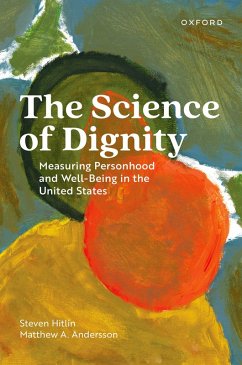
Affective Determinants of Health Behavior (eBook, PDF)
Versandkostenfrei!
Sofort per Download lieferbar
56,95 €
inkl. MwSt.
Weitere Ausgaben:

PAYBACK Punkte
28 °P sammeln!
In the last 20-30 years, research on affective determinants of health behavior has proliferated. Affective Determinants of Health Behavior brings together this burgeoning area of research into a single volume and features contributions from leading experts in their respective areas. Editors David M. Williams, Ryan E. Rhodes, and Mark T. Conner and their contributing authors focus on a fascinating range of affective concepts, including (but not limited to) hedonic response, incidental affect, perceived satisfaction, anticipated affect, affective attitudes, and affective associations. In the fir...
In the last 20-30 years, research on affective determinants of health behavior has proliferated. Affective Determinants of Health Behavior brings together this burgeoning area of research into a single volume and features contributions from leading experts in their respective areas. Editors David M. Williams, Ryan E. Rhodes, and Mark T. Conner and their contributing authors focus on a fascinating range of affective concepts, including (but not limited to) hedonic response, incidental affect, perceived satisfaction, anticipated affect, affective attitudes, and affective associations. In the first part of the book, the role of affective concepts in multiple theories of health behavior is highlighted and expanded, including theories of action control, dual-processing, temporal self-regulation, self-determination, and planned behavior, along with a new theory of hedonic motivation. The second part of the book focuses on the role of affective concepts in specific health behavior domains, including physical activity, eating, smoking, substance use, sex, tanning, blood donation, the performance of health professionals, cancer screenings, and cancer control. Affective Determinants of Health Behavior offers readers an important window into existing research and serves as a showcase for important insights on possible new directions and implications for intervention.
Dieser Download kann aus rechtlichen Gründen nur mit Rechnungsadresse in A, B, BG, CY, CZ, D, DK, EW, E, FIN, F, GR, HR, H, IRL, I, LT, L, LR, M, NL, PL, P, R, S, SLO, SK ausgeliefert werden.













